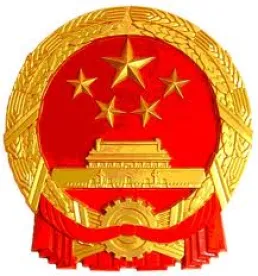President Trump has stated that he would impose tariffs on imports from China ranging from ten to forty-five percent. Can he do it? And will it cause a trade war?
The Effects of Increased Tariffs
In the 18th Century, tariffs were considered a method of generating revenue and protecting domestic industry. The first U.S. customs duties were imposed in 1789, and were considered vital to the economic survival of the young nation. That mercantilist approach has since been overwhelmingly rejected by mainstream economists. Even by the time of the American Revolution, specialization and comparative advantage were being touted (including by Adam Smith, whose Wealth of Nations was published in 1776) as the true route to national prosperity.
Nevertheless, high import duties continue to have a place in modern trade policy. For example, the U.S. Department of Commerce regularly imposes antidumping duties to protect U.S. production of certain goods, from roller bearings to frozen crawfish. Those duties often cause the foreign manufacturers to withdraw from the U.S. market, which yields higher market share for the domestic companies. Of course, one criticism of this approach is that protecting a producer’s market increases the consumer’s prices. So picking winners isn’t always the best strategy for everyone.
But the threat to impose a high duty on all goods from a specific country would be a totally different kettle of crawfish. Would President Trump attempt to impose a broad new tariff on China? We think he will. He has so far shown a great willingness to buck conventional opinion in favor of bold policy initiatives (such as the successive executive orders on immigration). There is absolutely no reason to think he would avoid a China tariff just because Adam Smith would think it is a bad idea. We understand the Administration is currently researching multiple potential avenues to increase duties on Chinese imports. Those avenues could include the 1917 Trading with the Enemy Act, which President Nixon invoked in 1971 to impose a 10% surcharge on imported steel. The Nixon steel surcharge was implemented by Presidential proclamation, codified by a summary change to the tariff schedule, and upheld by the federal courts.
Other tools at the Administration’s disposal include the International Emergency Economic Powers Act of 1977 and the Trade Expansion Act of 1962. And President George W. Bush imposed steel tariffs in 2002 under the provisions of the Trade Act of 1974. According to an analysis by one of the world’s foremost free traders, these actions and more have been generally upheld by the U.S. courts.
But some of Mr. Trump’s critics suggested that his proposed tariffs may trigger a trade war. And everyone knows (well, almost everyone) that high tariffs imposed in 1930 triggered a trade war and deepened the Great Depression. Some think it contributed to the outbreak of WWII. So would a Trump Tariff of 2017 cause another trade war?
Trade War and the Great Depression
The Smoot-Hawley Tariff Act of 1930 imposed high new tariffs on over 890 imported goods. Trading partners imposed retaliatory tariffs, which spiraled upward into a global trade war. U.S. exports dramatically declined in the early 1930s. One recent analysis concludes that regardless of whether the Smoot-Hawley tariffs were the major cause of the Great Depression, “they definitely were a truly terrible idea. In today’s world where Central Banks have been pumping out liquidity and inflating stocks, similar to the case in the 1920s, we must hope that we don’t repeat the mistake of Smoot-Hawley.”
Enter the WTO
It is true that world liquidity and manufacturing capacity are high, and some consider the equities markets to be bubbling over. But one tool the world has that it did not have in 1930 was the World Trade Organization (WTO). China and the United States are both among the WTO’s 164 member states. One of the WTO’s goals is to avoid trade wars – in fact that is one of the central reasons it was set up in 1995.
All WTO members agree to afford all other members something called most-favored nation (MFN) treatment. The MFN principle obligates WTO members not to discriminate between trading partners by imposing higher duties against a single WTO member, except under very narrow circumstances. If they do impose WTO-inconsistent duties, there is a very deliberate series of procedures the offended member must take before retaliating. As a result, the WTO Agreement tends to slow down the process of escalating tariffs, and avert trade wars. Although a prevailing party can ultimately obtain WTO approval for imposing retaliatory tariffs, it can take years.
Will Tariffs Under President Trump Result In a Trade War With China?
The existence of the WTO drastically alters today’s stage from that of the era of the Great Depression. With a much slower retaliation cycle, even if the Trump Administration imposed a broad import duty on China, the prospect of an all-out trade war may is much more unlikely than in times past. Of course, it is also true that Mr. Trump could unilaterally withdraw from the WTO, as he threatened during the campaign to do if his trade policies with Mexico do not bear fruit. For now, we’re not taking him at his word on that. But if he is thwarted in his efforts to renegotiate NAFTA, we will revisit that assessment.




 />i
/>i

